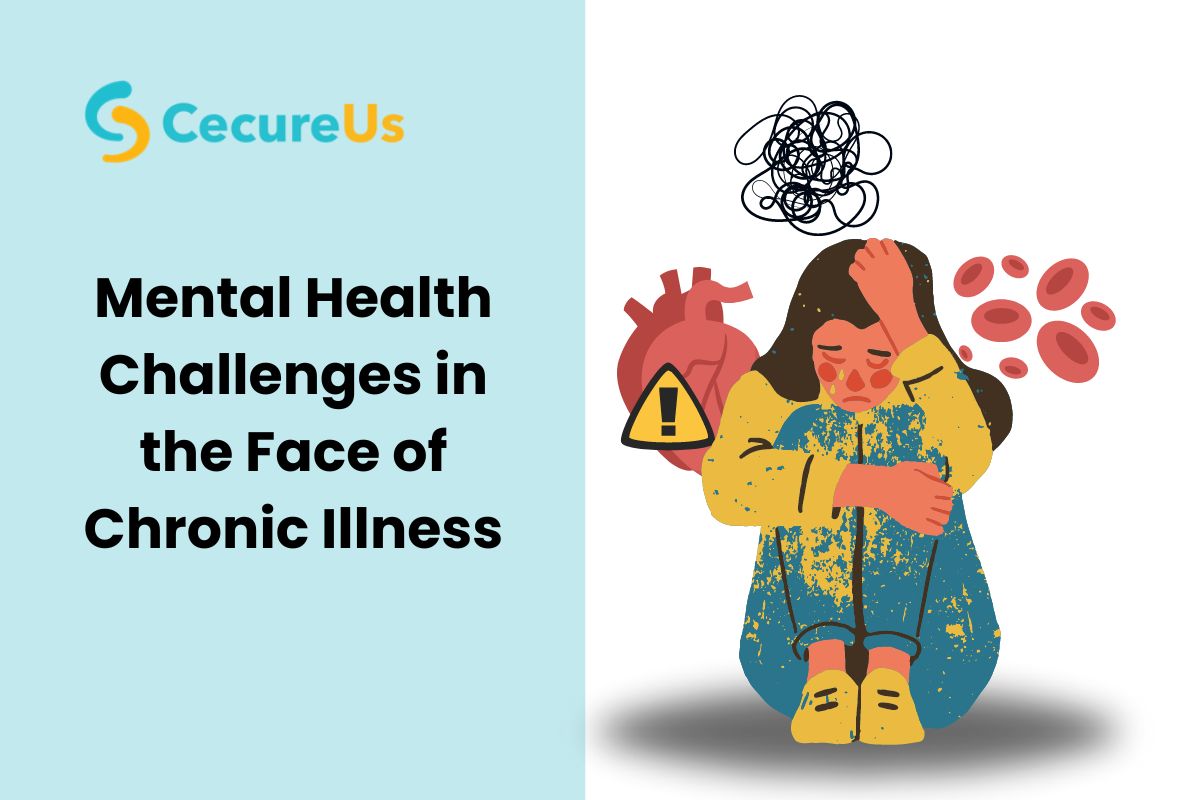
Chronic diseases, such as diabetes and heart disease, are long-term problems requiring ongoing medical care. 11.4% of India’s population or 101 million people are living with diabetes. According to the American Thyroid Association, women are five to eight times more likely than men to develop thyroid disease; more than 12 percent of women will develop a thyroid disorder during their lifetime. These conditions have a substantial impact on an individual’s quality of life.
Understanding the Challenges.
- Physical limits: Chronic diseases frequently cause physical limits such as pain, exhaustion, movement difficulties, or changes in appearance. These constraints can impede day-to-day tasks and decrease freedom. Chronic illness often brings invisible struggles, such as anxiety, depression, and feelings of isolation.
- Emotional Well-being: Coping with a chronic ailment can cause emotional suffering, such as depression, worry, frustration, and feelings of isolation. Constantly managing symptoms and probable illness progression can have a mental toll.
- Lifestyle Changes: Managing chronic conditions frequently necessitates considerable lifestyle changes, such as eating a healthy diet, engaging in regular exercise, or following drug regimens. These changes may be tough to implement into one’s everyday routine.
- Financial Burden/dependency: The costs of drugs, medical visits, diagnostic testing, and hospitalizations can be burdensome for people living with chronic conditions and their families.
- Social Impact: Chronic diseases frequently necessitate lifestyle changes, which can lead to social isolation or difficulty participating in formerly enjoyable activities. The loss of contact with friends and loved ones can exacerbate feelings of loneliness and despair.
Tips to have a healthy life:
- Seek Help: Establishing a support network is critical for managing chronic conditions. Contact friends, family members, or support groups who can offer empathy, understanding, and encouragement during your journey.
- Maintain Open Communication with Doctors: Regular communication with your healthcare providers is essential for discussing treatment options and managing symptoms efficiently. This can help you address concerns quickly and improve your quality of life.
- Develop Healthy Lifestyle Habits: Incorporate healthy behaviours into your daily routine, such as eating a balanced diet rich in fruits and vegetables, exercising regularly as recommended by your doctor, getting adequate sleep, and avoiding dangerous habits like smoking and excessive alcohol consumption.
- Stress management: Chronic diseases can be stressful, therefore it’s critical to develop good stress management strategies. Deep breathing exercises, meditation, yoga, or indulging in enjoyable activities can all help you relax.
- Educate yourself: Understanding your disease and available treatment options allows you to actively engage in your healthcare journey. Stay informed by using credible sources, consulting with specialists, and asking questions during medical sessions.
- Embrace technology: Utilize digital platforms and healthcare apps that offer self-management tools, medication reminders, symptom tracking, and access to support groups.
- Regular Medical Check-ups: To effectively manage chronic conditions, it is necessary to interact with healthcare specialists regularly for check-ups, screenings, and prescription changes. Early detection and quick management can reduce problems and improve outcomes.
Chronic illness can challenge one’s sense of identity and purpose, leading to profound existential questions and a struggle to reconcile a new reality. It’s the responsibility of the family members or friends to help them cope with the challenges.
Talk to our Psychologists at 1800 121 9497 / wellness@cecureus.com/ www.eap.cecureus.com to understand and reduce the impact of mental health challenges.
For more blogs and articles, visit our official website. Contact us for workshops and queries related to POSH, EAP (Employee Assistance Program,) and Diversity and Inclusion.




